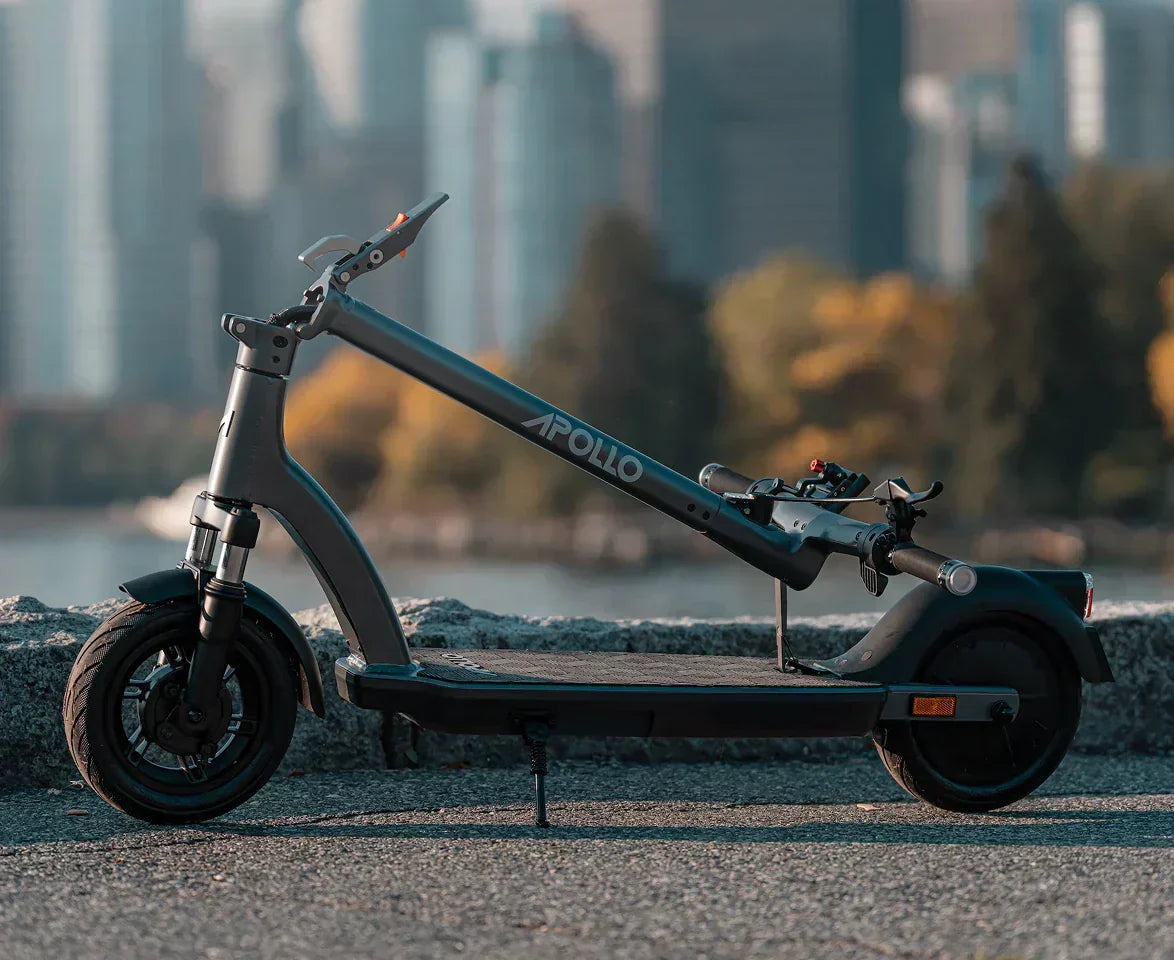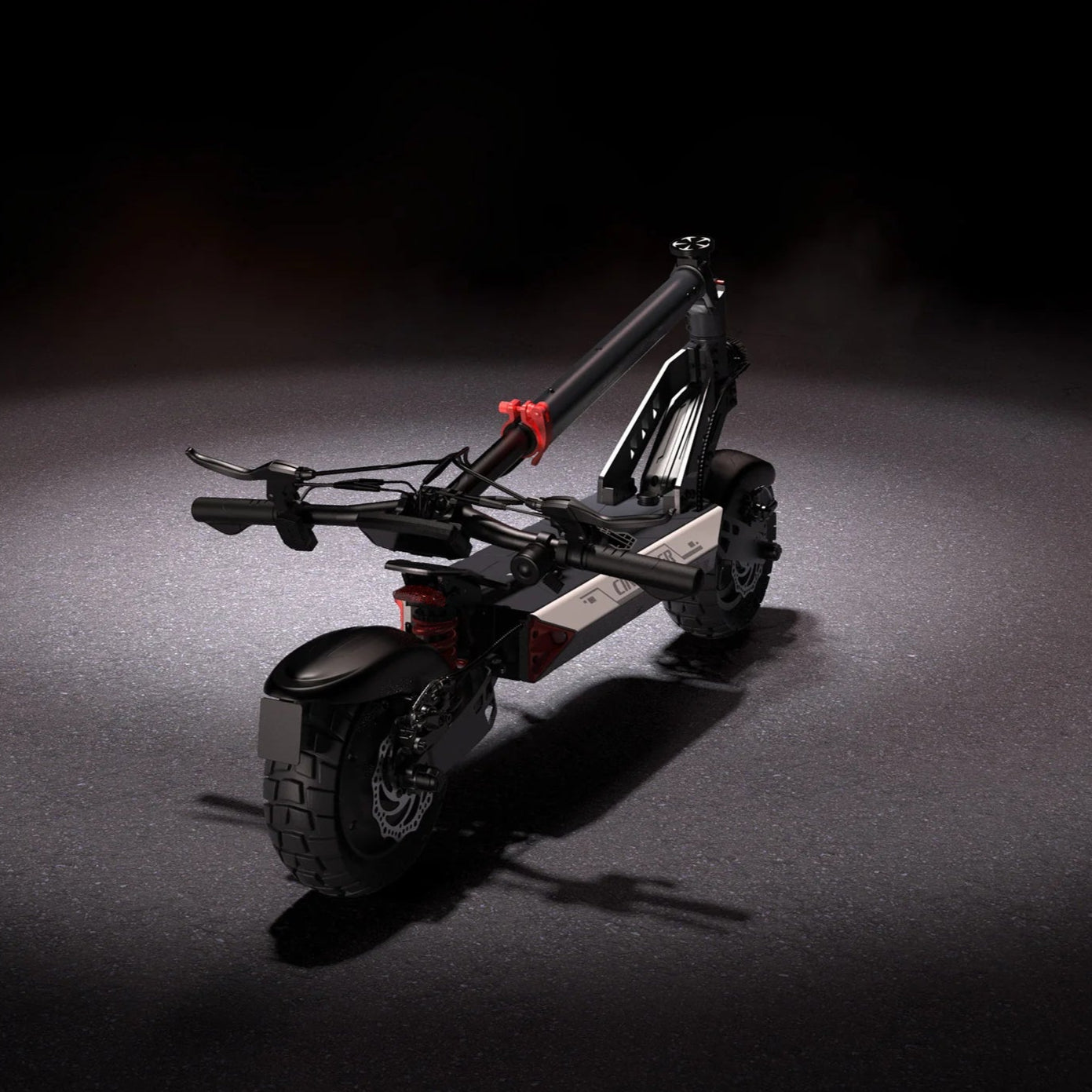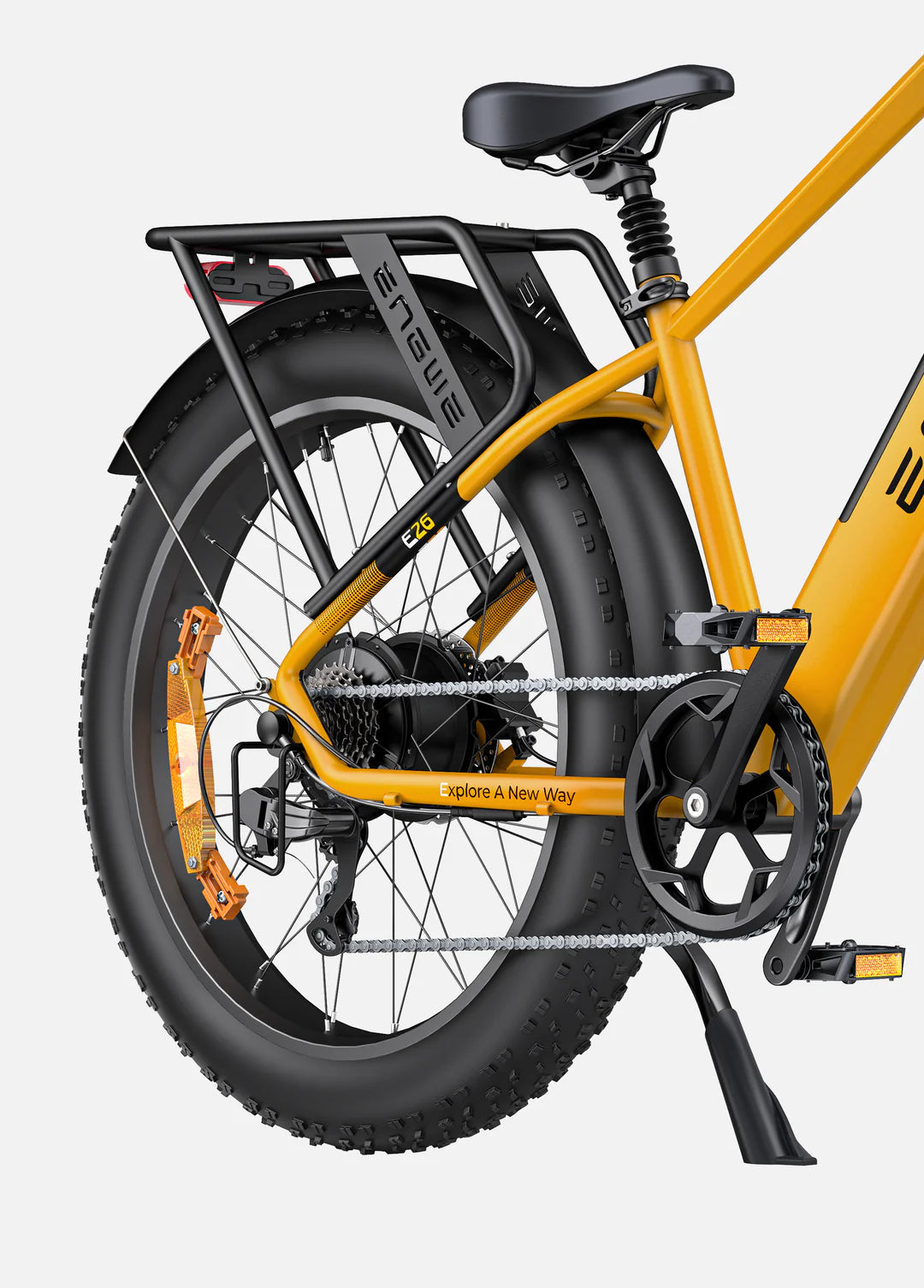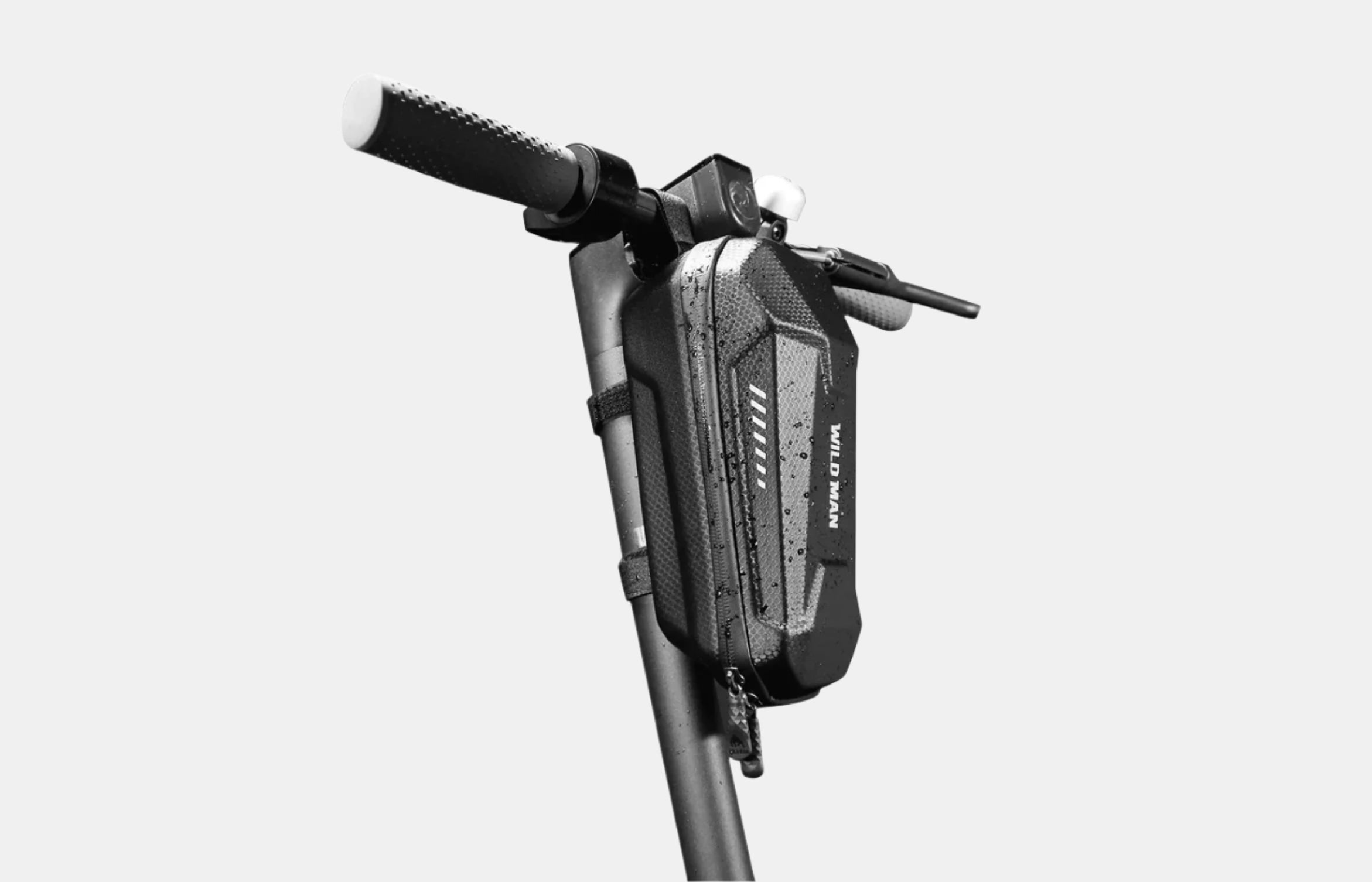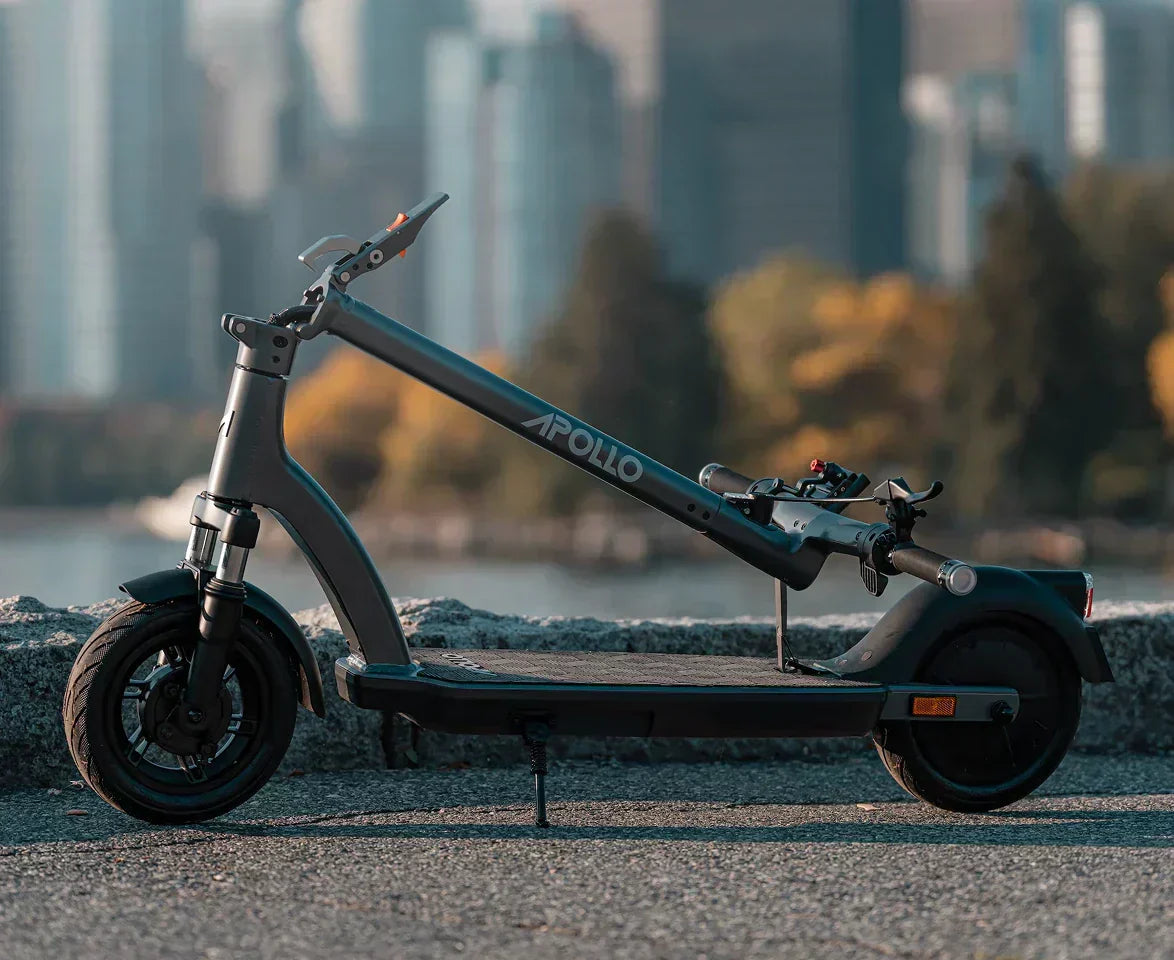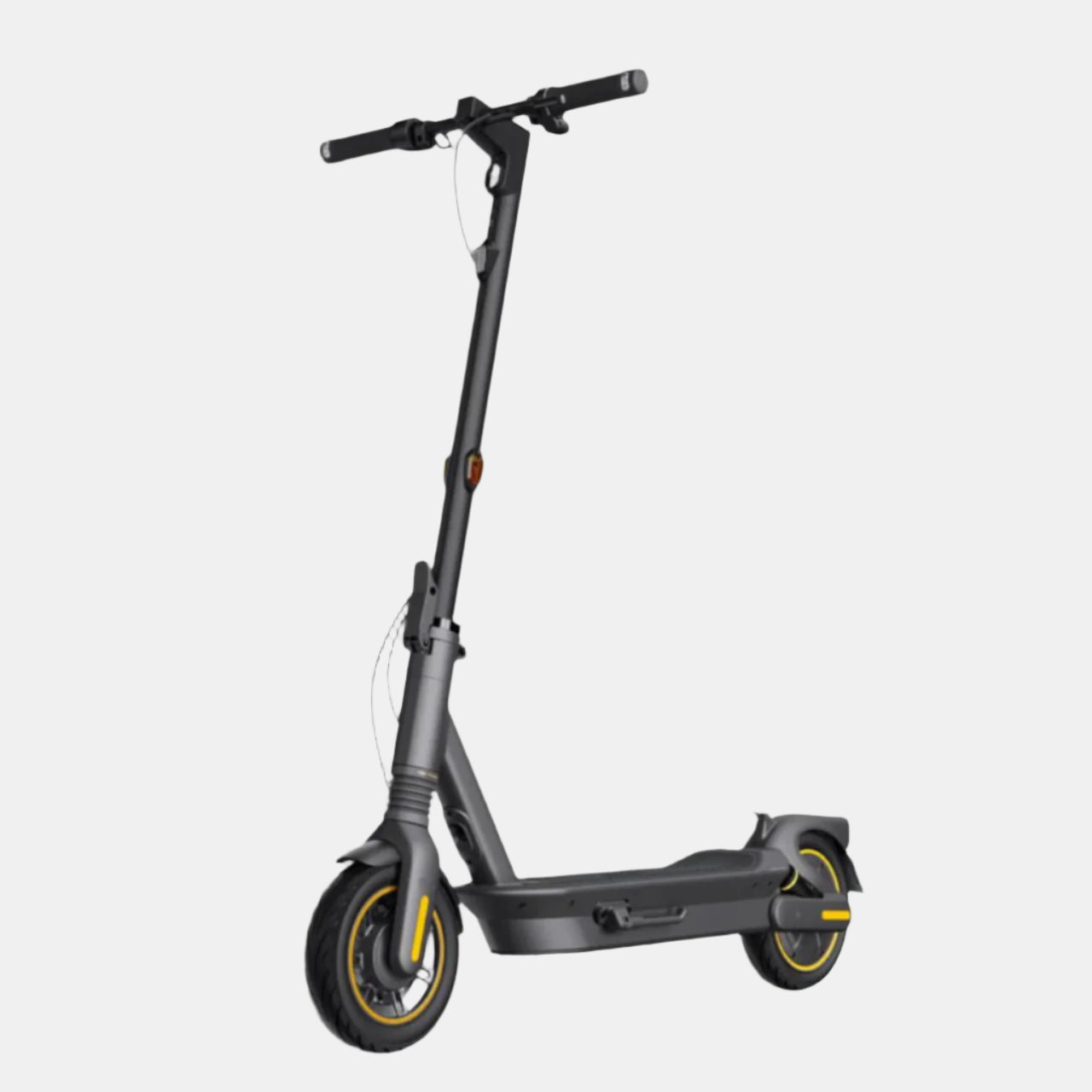Scooter Overview
The Apollo Air 2024 aims to be a light, commuter-friendly electric scooter with a sleek design, IP66 rating, and decent speed for urban riding. However, in our real-world testing and repair experience, the results tell a different story.
After servicing and testing hundreds of Apollo scooters over the past few years, I can confidently say that the Apollo brand consistently underdelivers, and the 2024 Air is no exception.
Build Quality
4/10
Despite marketing claims, the overall build doesn’t inspire confidence. The chassis feels basic, and the suspension is limited to only the front fork, which leaves you vulnerable to knee discomfort during longer rides.

6/10
Apollo advertises up to 54km of range, but during my own test rides (200 lbs rider, 20°C spring day), I was only able to achieve 30km max, less than expected. This discrepancy makes the battery feel like a bait-and-switch.
7/10
This year’s model features tubeless tires, which is a welcome improvement. The tread and size seem directly inspired by Ninebot Max. They perform decently in terms of grip and puncture resistance since comes with self-healing glue inside.

3/10
Officially rated IP66, but I’ve personally seen dozens of water-damaged Apollo Air scooters in my shop. The internal sealing and controller placement are simply not up to standard. Don’t trust/use this scooter in wet conditions.



